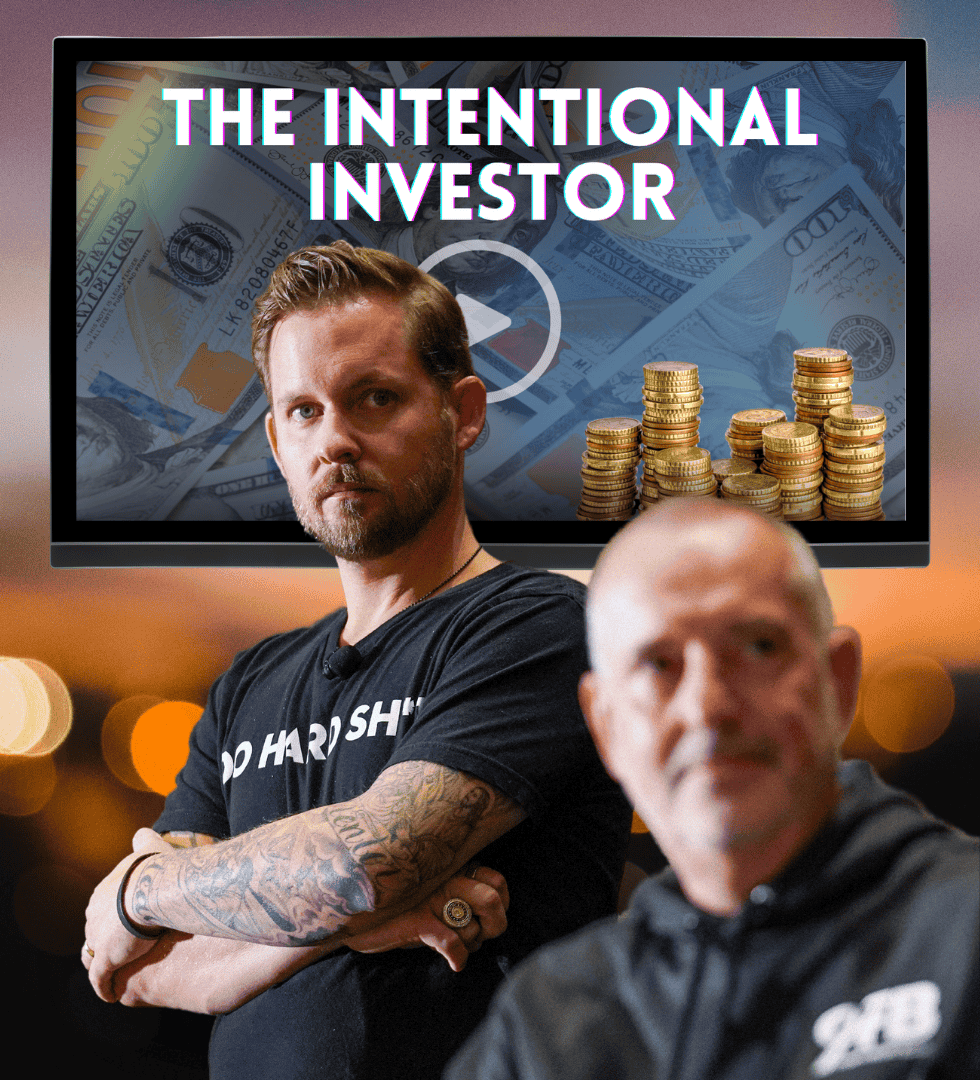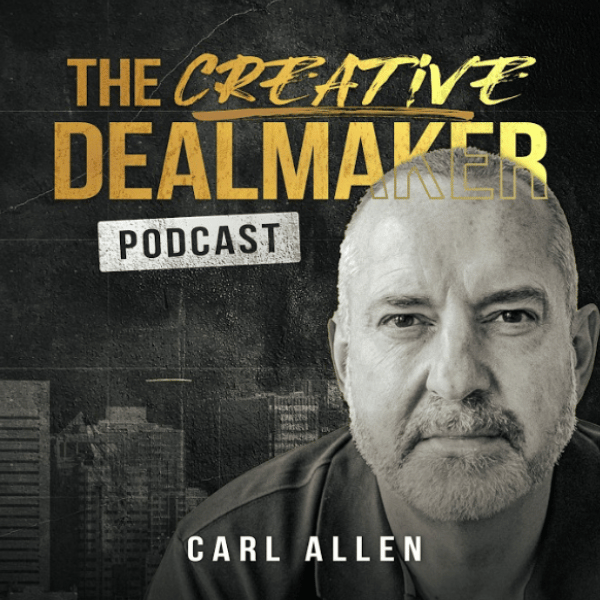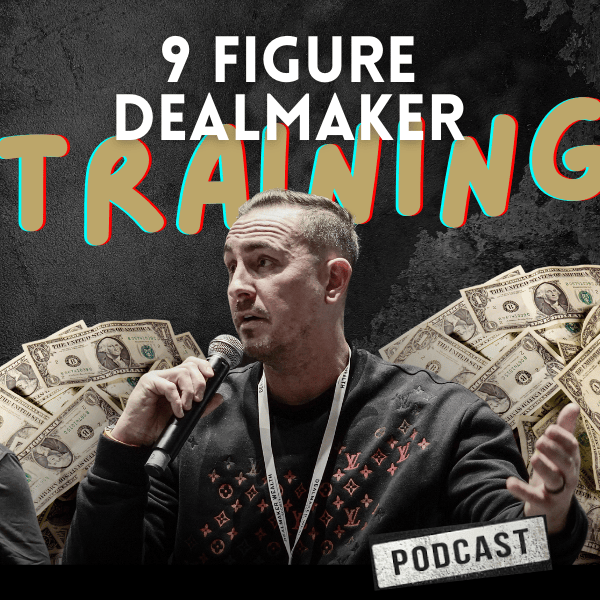
Editor’s Note: Tomorrow we have a VERY RARE opportunity that’s not to be missed! At 11:00 a.m. ET (4:00 p.m. GMT), Carl Allen and Adam Markley will host a FREE special online training to show you how they evaluate a real (anonymized) business-buying opportunity. It’s your chance to see these professional dealmakers in action… and chat with them LIVE! So mark your calendars – and simply go to the Dealmaker Wealth Society YouTube channel tomorrow at 11:00 a.m. ET. We look forward to seeing you there!
Adam and I are really enjoying our twice-weekly live sessions.
We go live on Facebook every Monday, and on Fridays we end the week on YouTube live (with a cold beer!).
As you can imagine, we get a ton of questions that we can’t always get through during the live sessions.
So, occasionally, I’ll take a few of your burning questions we didn’t get to and answer them in Confessions…
Today, there are two questions from last week’s session I want to cover.
Let’s get started…
Regarding online businesses… The problem is on how to finance the deal. Online businesses generally have low values in fixed assets or in receivables. Unless you negotiate 100% seller financing, putting no cash down at close isn’t possible. Where can I find resources for a closing payment? A bank loan?
– Ethan M.
You are correct that online businesses have little to no assets. Even inventory is not allowed to be financed because it’s typically held in a drop-shipping or fulfillment center like one of Amazon’s.
A financier will only finance inventory that is physically held in your business’s location. The reason for that is right of access. If you default on the financing repayments and the financier has to come and repossess the inventory, the financier has legal right to come and get it from your warehouse.
If your inventory is buried deep inside of a mega Amazon fulfillment center, however, the financier can’t legally storm the gates of Amazon to repossess it.
Your other issue with online businesses is the seller demographic and psychographic.
Most online businesses are owned by younger entrepreneurs who don’t have the general seller distress signals we usually find with brick-and-mortar deals – like boredom, burnout and an eye toward retirement.
That said, it’s still 100% possible to close these deals.
Granted, some of the deal will need to be seller-financed. And since most online sectors are booming right now, the appetite for 100% seller-financed deals is fairly low (unless you have a highly distressed seller who needs to exit quickly).
Closing payments can come from a cash flow lend. This is when a financier lends on a multiple of recurring cash flow, typically up to 2.5X.
For example, if you find a business with $500K in free cash flow and you are buying it for a 4X multiple (an enterprise value of $2 million), you can generate over $1 million from a cash flow lender. Then you can pay 50% at closing with 50% seller financing.
Note that for cash flow lends without any other asset-based financing, a personal guarantee and cash injection will be required – typically 20% of the total funding required. So you may have to partner with an angel investor.
Look for an angel investor who has built and sold a similar business. Partnering with them will be highly valuable – you can offer them equity in the business for lending their knowledge and expertise.
To find angel investors, start with these sites:
- For the U.S.: https://www.angelinvestmentnetwork.us/
- For the U.K.: https://www.angelinvestmentnetwork.co.uk/
And there are tons of others – just Google “angel investors, [country] and/or [sector].”
Another option is to get creative. Split the closing payment into a smaller payment at closing with the rest after, say, 90 days. (This is called a deferred closing payment.)
Once you’re the owner, it will be easier and quicker to raise a line of credit from a bank familiar with you – and the business.
You could also crowdfund – using debt and/or equity. But equity-based crowdfunding won’t give you the value add that an angel investor with some sector knowledge will.
All right – the second question is…
How do we find solicitors and accountants who will perform the due diligence on a delayed-fee or success-fee basis? Are they more open to this arrangement once you have heads of terms and an LOI [letter of intent]?
– Pam C.
Yes, that is correct. It’s virtually impossible to strike a contingent-fee deal with a CPA or lawyer to conduct due diligence and close the deal for you without THREE critical components…
Two are tangible. One – the most important – is intangible.
Here is what you need before starting that discussion…
- A signed LOI. This means the executive summary and high-level terms of the deal are agreed to, including price, structure, seller involvement post-close (if any), timeline to close and any other pre-agreed conditions prior to detailed legal negotiation of the SPA (sale and purchase agreement). That way everyone knows what the deal entails.
- A financing term sheet. You may have more than one, but these are expressions of interest (EOIs) from a financier that is prepared to finance the deal, subject to their own due diligence and legal contract. A term sheet from a financier is a huge milestone in a deal, as in my experience the majority of deals close once you have a signed LOI and a financing term sheet.
- Finally (but really first and foremost), you need a RELATIONSHIP. Even with a term sheet and a signed LOI, you can’t call up a random adviser and pitch them on a contingent-fee deal out of the blue. You need to warm them up by building a relationship before you find a deal.
Smart dealmakers are networking with deal intermediaries – such as CPAs and lawyers – at the deal specification and deal origination stage. Why? Because these people will have access to off-market deal flow.
Not only that, but these advisers also have a vested interest to get involved.
If they have clients looking to sell, the adviser can support the seller (on the sell side) and earn fees from them. Or the adviser can use their professional network to source deals and work for YOU on the buy side.
It all comes down to a solid pitch. Write to a CPA and lawyer and say that you are buying a business in sector X (be sure to share your specs with them) and will need advising both on the deal and as the future owner of the business.
What adviser would turn down a new client? None of them.
Be sure to keep in touch with these advisers during your dealmaking journey, sending them weekly updates on your progress.
And there you have it. Two more of your burning questions answered.
If you have a dealmaking question you want me and Adam to answer, reply to this email – or tune in to our weekly live events on Facebook and YouTube.
Either way – we’re here to serve you, so keep your questions coming.
Until next time, bye for now.
Carl Allen
Editor and co-founder, Dealmaker Wealth Society
P.S. Remember, tomorrow Adam and I are hosting a special online training session on YouTube, where you can watch as we analyze a real (anonymized) deal and give it a thumbs up or thumbs down. You don’t want to miss it! Watch on the Dealmaker Wealth Society channel at 11:00 a.m. ET (4:00 p.m. GMT).
















